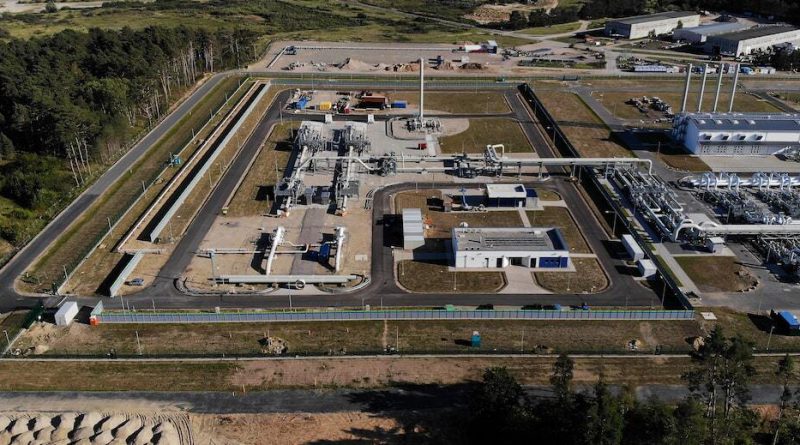Kremlin says intact section of Nord Stream gas pipelines could be quickly activated
The reactivation also presents opportunities for innovation in pipeline management, safety protocols, and energy diplomacy.
The surviving segment of the Nord Stream pipeline system, which links Russian natural gas supplies to Germany, could be rapidly put into service, Kremlin officials confirmed. This development comes as Europe explores avenues to enhance its energy resilience and ensure stable supplies for the coming winter months.
The Nord Stream infrastructure, consisting of two double pipelines—Nord Stream 1 and Nord Stream 2—runs beneath the Baltic Sea to Germany. After the tragic explosions in 2022, which temporarily disrupted supplies, one pipeline of the Nord Stream 2 system remained intact. Peskov assured that this surviving line is technically ready for immediate operation, underscoring its potential to support energy stability in the region.
“Europe has a robust pipeline system, and the remaining Nord Stream line can be launched right now,” Peskov stated. He emphasized the technical feasibility and readiness of the pipeline, which could reinforce European energy security, particularly during periods of heightened demand.
German authorities have been closely monitoring developments, balancing energy supply needs with diplomatic considerations. German Chancellor Friedrich Merz previously noted that controlling the operation of Nord Stream 2 was part of broader efforts to engage Russia in constructive dialogue regarding the ongoing Ukraine conflict. European energy experts view the reactivation of the intact pipeline segment as an opportunity to diversify sources, improve supply reliability, and reduce pressure on alternative energy networks.
While investigations into the 2022 explosions are ongoing, authorities in Germany and other European nations are collaborating to ensure a safe and controlled restart. Peskov expressed hope for a swift conclusion to the German-led inquiry into the incidents, which remain officially classified as sabotage. Despite past geopolitical tensions, Russia’s commitment to transparency and operational readiness signals a step toward stabilizing energy flows.
The international energy community has responded positively to this announcement, noting that even a partial increase in gas transport capacity could help mitigate potential winter shortages. Analysts point out that having the intact Nord Stream line available allows European countries to plan energy distribution more effectively, supporting households and industries alike.
Furthermore, the renewed focus on operational infrastructure reflects a broader trend in Europe and Russia toward energy reliability, sustainability, and long-term cooperation. While past incidents created significant disruption, the technical resilience of the Nord Stream system demonstrates the ability to recover and maintain critical energy links.
The reactivation also presents opportunities for innovation in pipeline management, safety protocols, and energy diplomacy. European nations, together with Russia, could leverage this intact pipeline to explore enhanced cross-border energy agreements and emergency response strategies. By optimizing the existing infrastructure, both energy producers and consumers stand to benefit from improved efficiency, reduced costs, and strengthened regional energy partnerships.
In addition to technical readiness, this announcement reinforces confidence in Europe’s strategic energy reserves. With the intact Nord Stream segment, European nations can better manage natural gas storage, anticipate seasonal demand fluctuations, and coordinate with renewable energy initiatives. Analysts suggest that such a proactive approach will enhance resilience across energy markets, reduce dependency on volatile alternative supply routes, and ensure stability for millions of end-users.
Ultimately, the operational potential of the remaining Nord Stream line serves as a reminder of the importance of maintaining and investing in robust infrastructure. By leveraging existing assets, Europe can navigate energy challenges, support economic growth, and reinforce international collaboration in the energy sector.



